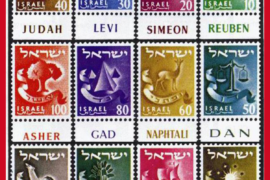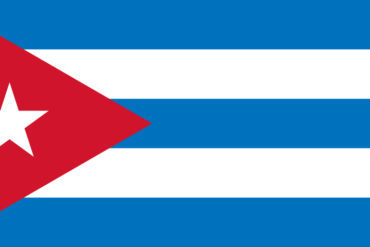On the tenth day of the Hebrew month of Tevet, Babylonian forces laid siege to Jerusalem, eventually crushing the Judean revolt, destroying our Temple, smashing our national framework and displacing us from our land.
Thousands of years later, Jews still fast on this day, refraining from food or drink until sundown. This fact alone speaks volumes about the length, depth and power of Israel’s collective memory.
Babylon was the first of what our people’s historiography identifies as the four empires that stand as antagonists to the children of Israel and attempt to obstruct our national mission while dominating the world with not only their militaries and economies, but also their cultures, value systems and ideological paradigms.
Each of these empires are viewed as unique expressions of a primordial oppositional force to Israel that was Divinely placed into Creation.
In Israel today, we also use the tenth of Tevet as a day to mourn the loss of the individuals killed in the German Holocaust against the Jews of Europe. When World War II ended, there were many who had lost their parents, siblings, children, relatives and friends but had no clue which day their loved ones were killed.
The tenth of Tevet therefore became the day to mourn the loss of each individual murdered by Nazi Germany while the ninth of Av became the day to mourn the Holocaust as a national catastrophe (among other catastrophes that resulted from our having been displaced from our land by the Roman fourth empire).
But what many don’t know is that the tenth of Tevet is actually the last of what was once a three day national mourning period. Our sages mark the ninth of Tevet as the day Ezra the Scribe left our world. Following the fall of Babylon and ascension of the Persian second empire, Ezra had led tens of thousands of Jewish exiles back to Judea. He oversaw Jerusalem’s rebuilding and began something of a cultural revolution to restore our society’s Hebrew character.
Ezra was the most central personality in the Jewish liberation movement of the time, and his death left a leadership vacuum that merited a national day of mourning.
Our sages designate the eighth of Tevet as a fast day because “on the eighth of Tevet, the Torah was written in Greek in the days of Ptolemy the king and darkness came to the world for three days” (Megillat Ta’anit).
During the reign of the Greek third empire, the Torah was translated into the language of the most dominant and culturally influential civilization the world had seen. Greek was the language of philosophy, literature and, of course, the power ruling Judea at the time.
It’s puzzling that the children of Israel, tasked with becoming a “light unto nations” and inspiring humankind with our unique Divine worldview, would mourn the translation of our most sacred ancient text into a language that would allow it to reach far and wide.
The answer lies in the power dynamics involved in a hegemonic empire adopting cultural products of a minority population. Erasure doesn’t only come through restricting a subordinate group’s practice of its own culture, as the third empire later attempted in the time of Antiochus IV. Erasure can also come through appropriation, exploiting and diluting a subjugated people’s culture in an attempt to absorb its identity into the dominant civilization.
This appropriation was deepened by the fourth empire when the Romans absorbed features of our Torah into Christianity. And it plays out today through the very notion of a “Judeo-Christian” civilization that is in reality just Christian civilization with acknowledgement that some concepts were taken from the ancient Hebrews (as some were taken from other conquered peoples). But these concepts were taken and co-opted into the fourth empire’s civilization for the purpose of advancing its own imperialist agenda.
Perpetuating the myth of a shared civilization between Israel and the fourth empire blurs the important differences between the Hebrew and Christian worldviews and encourages Jews to delude ourselves into thinking of modern Western civilization as our own. This has resulted in not only the abandonment of our own unique values and identity but also the negation of our entire historic mission.
Even if one were to argue that the fourth empire didn’t hijack our values but actually extended the influence of those values to more of the world, it’s still undeniably clear that humanity has already been exposed to the aspects of Hebrew civilization shared by Christianity. All Israel has left to offer are the points that distinguish us. The unique contribution we must make to mankind today will come specifically from the areas on which we differ with Western civilization. Downplaying these distinctions and allowing ourselves to be swallowed into whiteness not only prevents us from decolonizing Jewish identity but also from contributing anything new to the world.
What links these three days of mourning is the influence each event has had on Israel’s national mission. The destruction of Jerusalem, loss of an outstanding national leader inspiring return (both to our homeland and identity) and the appropriation of our culture by dominant imperialist forces have all been obstacles on the road to establishing the civilization meant to serve as a vehicle to creating a better world.
Now that we’re finally back in our land, it’s crucial we focus our attention not only on the material rebuilding of our nation but also on the culture and values it’s meant to express.





